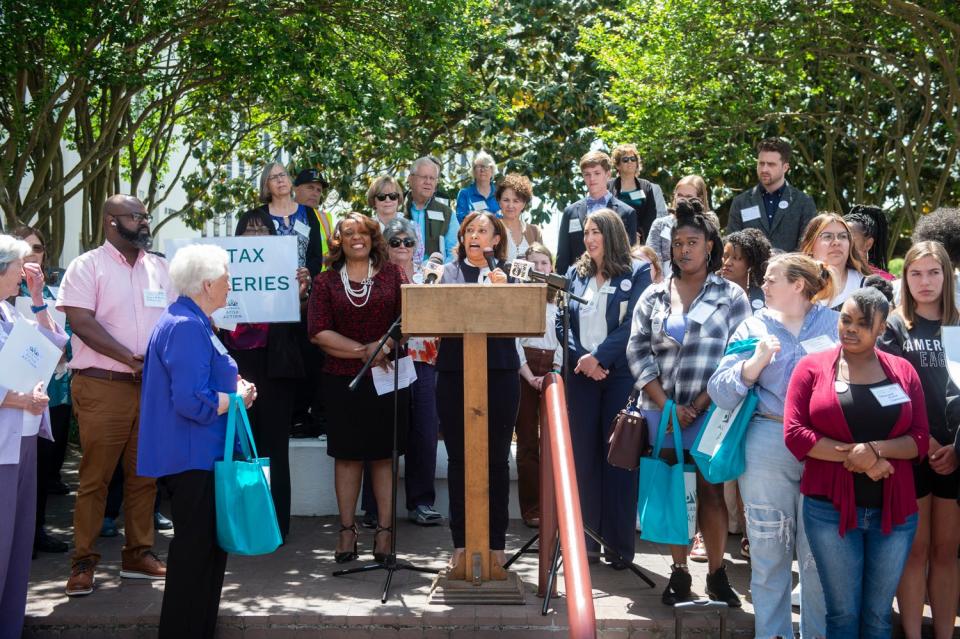State House rally demands legislators end Alabama's grocery tax
About 200 people from across the state assembled Tuesday outside the State House to call for an end to Alabama's 4% grocery tax.
Protesters carried signs that read, "Untax Groceries" and "Protect Public Education" at the rally, which was organized by Alabama Arise. Alabama is one of three states that impose a tax on groceries.
Alabama Arise organized the event. Protesters carried signs that read, "Untax Groceries" and "Protect Public Education."
“This is the year to finally untax groceries once and for all," said Kathy Vincent, the president of Alabama Arise's board.
State Sen. Merika Coleman and state Rep. Penni McClammy, both Democrats, spoke at the event and promised to file bills to remove the grocery tax. “We can all agree on this: that the tax on groceries is just wrong and unfair," Coleman said.
McClammy agreed. “You elect us to be your mouthpiece. You have spoken," McClammy said, stating that the Alabama people want to repeal the grocery tax.
Families cannot afford to pay the 4% tax on foods, said Robyn Hyden, the executive director for Alabama Arise. “Our families are hurting," Hyden said.

After the protest, the 200 people who gathered at the State House steps entered the building to lobby lawmakers to support bills to end the statewide grocery sales tax. Arise members across the state spent the day calling legislators, urging them to support these bills.
“There’s no excuse" to keep the sales tax, Hyden said.
For an average family of four, the tax costs them $600 a year and the local grocery tax also costs families $600 a year, Coleman said. There is no legislation yet on the docket to cut the local grocery tax.
The grocery tax brings about $600 million to education each year. Coleman proposed repealing the FIT tax deduction that limits taxing the rich. If lawmakers repealed the deduction, it would bring in about $900 million a year, Coleman said.
“The good news is we have more equitable and fair ways to funds our education budget," Coleman said, referencing eliminating the FIT tax deduction.
“You should have a fit" about the FIT tax deduction, Coleman said.
Cutting FIT would require a constitutional amendment that would ultimately be decided by voters.
“My bill will give voters the final say," Coleman said.
More than 90 percent of Alabama’s population lives in areas with a combined sales tax of 9 percent or more, according to previous reporting by the Montgomery Advertiser. Alabama has taxed groceries since the Legislature first imposed the state sales tax in 1939.
“Get rid of this grocery tax now," Hyden called out, ending her speech.
Alex Gladden is the Montgomery Advertiser's public safety reporter. She can be reached at agladden@gannett.com or on Twitter @gladlyalex.
This article originally appeared on Montgomery Advertiser: State House rally demands legislators end Alabama's grocery tax

